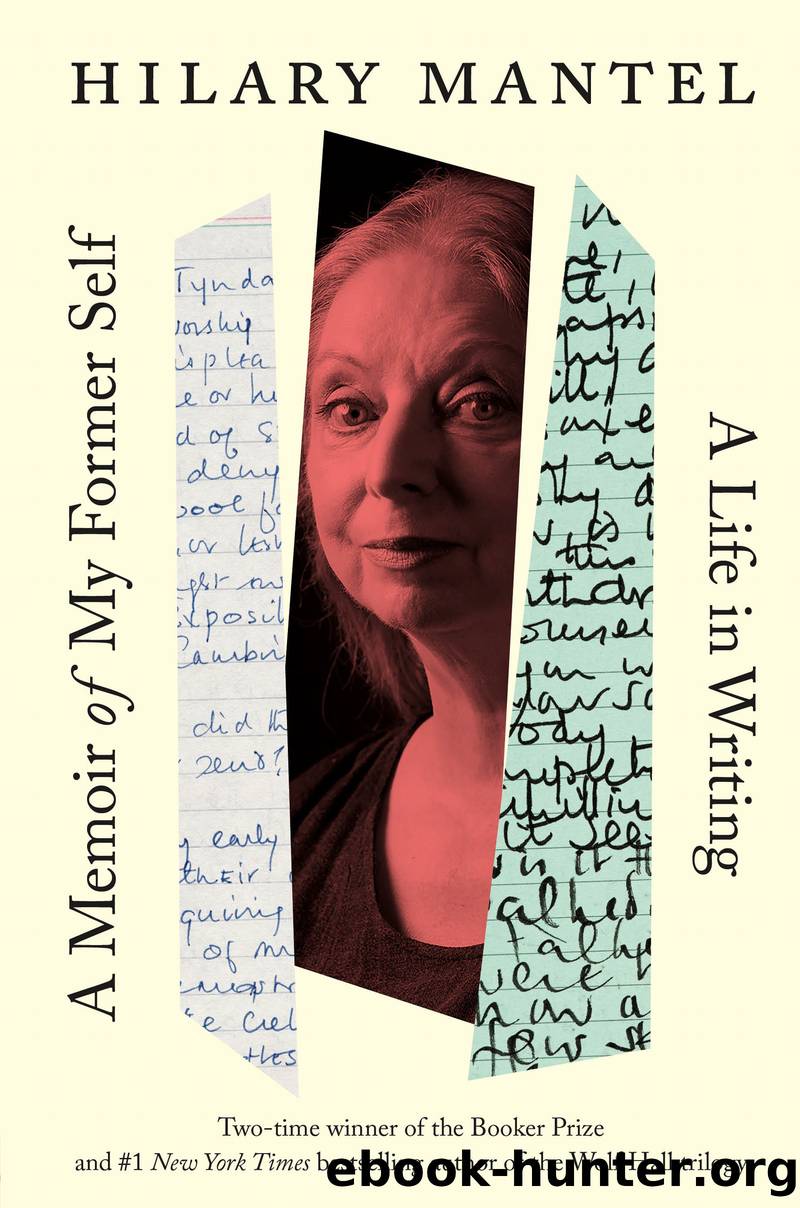A Memoir of My Former Self by Hilary Mantel

Author:Hilary Mantel
Language: eng
Format: epub
Publisher: Henry Holt and Co.
The debate about capital punishment, she realized, is inseparable from the debate about race, and about poverty. You donât find wealthy people on death row. In her neighborhood, they told her that âcapital punishment means them without the capital get the punishment.â
She admits to a certain ignorance about how her own country worked. âWhen I first started visiting the condemned in 1982, I presumed the guilt of everyone on death row.â The death of an innocent person would be a fluke, she thought. In Dead Man Walking she examined cases where the executed men were guilty beyond doubt of the crimes for which they were killed by the state, but here she deals with two cases where she is sure the men on trial were innocent. They both believed that they had only to tell their story, and the truth would set them free. Her book is a detailed history of how wrong they were. When Sister Helen scrutinized the process of cases that interested her, and looked afresh at the initial trial process in each, she began to realize that âthe courts are a system of gates that shut like one-way turnstiles. Once you come out, you canât go back.â
It is vital to get effective legal representation at the earliest stages, and this is what poor people cannot get. The poor are defended by âoverworked, underfunded and inept attorneys,â yet federal appeal courts routinely deny appeals based on âineffectiveness of counselââany lawyer not actually a corpse seems to be good enough. In the case of Dobie Williams, his counsel failed to conduct proper forensic tests, challenge the all-white jury, or properly frame pleas in mitigation of sentence. In addition, mistakes of fact made at the initial hearings can rarely be retrieved. The âraw stuffâ of the crimeâpolice reports, eyewitness statements, physical evidenceâis dealt with at first hearing. Even if the appeal courts can be persuaded to re-examine it, there are the practical difficulties of disappeared witnesses, and missing and deteriorated forensic specimens. The prosecution has first sight of the evidence, and prosecutors routinely, she believes, withhold from the defense what is not helpful to their case, walking a fine line between carelessness and misconduct.
The defects of the system are well illustrated by the second case she follows, which is that of Joseph OâDell, a white man from Virginia. He was convicted of the rape and murder of a white secretary, who was bludgeoned to death after leaving a nightclub in February 1985. As in the case of Dobie Williams, the prosecution overlooked obvious suspects and wove a âpreposterous and convolutedâ story to implicate the accused, who had been seen at the same nightclub on the evening in question. OâDellâs landlady, who was also his girlfriend, had found some bloody clothes in a bag in her garage the next day, led there by an âintuitionâ after reading a report of the murder. The police found a blood type âsimilarâ to that of the victim and arrested OâDell. They found semen âconsistentâ with OâDellâs on the victimâs body.
Download
This site does not store any files on its server. We only index and link to content provided by other sites. Please contact the content providers to delete copyright contents if any and email us, we'll remove relevant links or contents immediately.
| Actors & Entertainers | Artists, Architects & Photographers |
| Authors | Composers & Musicians |
| Dancers | Movie Directors |
| Television Performers | Theatre |
Cecilia; Or, Memoirs of an Heiress — Volume 3 by Fanny Burney(31034)
Cecilia; Or, Memoirs of an Heiress — Volume 2 by Fanny Burney(30980)
Fanny Burney by Claire Harman(25820)
We're Going to Need More Wine by Gabrielle Union(18122)
Plagued by Fire by Paul Hendrickson(16665)
Cat's cradle by Kurt Vonnegut(13951)
Bombshells: Glamour Girls of a Lifetime by Sullivan Steve(13156)
All the Missing Girls by Megan Miranda(12831)
Leonardo da Vinci by Walter Isaacson(11966)
4 3 2 1: A Novel by Paul Auster(11113)
Adultolescence by Gabbie Hanna(8173)
The remains of the day by Kazuo Ishiguro(7621)
Note to Self by Connor Franta(7051)
Diary of a Player by Brad Paisley(6888)
Giovanni's Room by James Baldwin(5961)
What Does This Button Do? by Bruce Dickinson(5564)
Recovery by Russell Brand(4597)
Born a Crime by Trevor Noah(4559)
The Kite Runner by Khaled Hosseini(4525)
